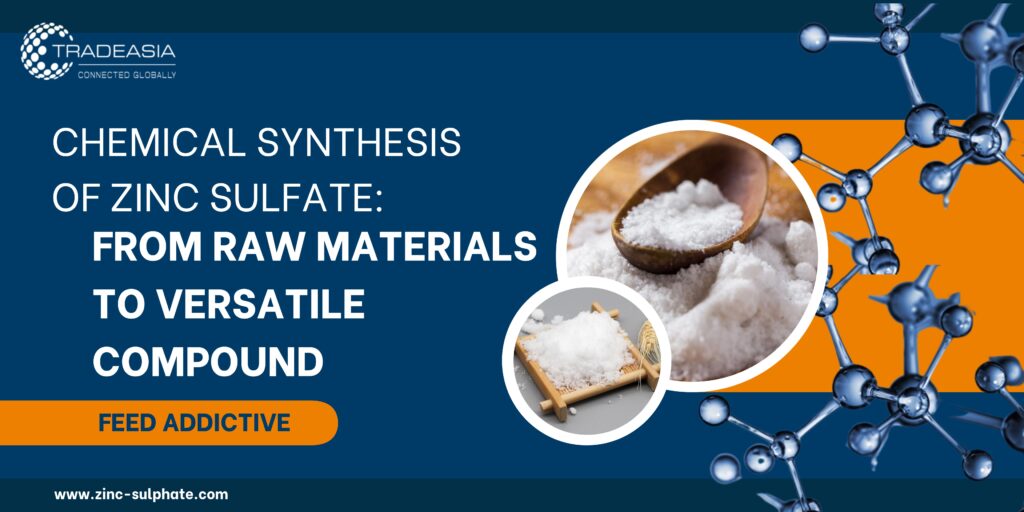
Zinc sulfate, a compound with diverse applications in agriculture, water treatment, health care and the chemical industry, is a chemical marvel created through a well-defined synthetic process. This article takes a closer look at the chemical synthesis of zinc sulfate, highlighting the raw materials, reaction mechanisms, and key considerations involved in its production.
Ingredient: Zinc and sulfuric acid
The process of synthesizing zinc sulfate begins with two main ingredients:
zinc and sulfuric acid. Zinc, usually obtained from zinc ore or recycled sources, is the main ingredient. Sulfuric acid, a strong and widely used industrial acid, serves as the reaction partner. The combination of these two materials causes a series of chemical reactions that lead to the formation of zinc sulfate.
Reaction mechanism
The chemical reaction can be described as follows:
Zn + H2SO4 → ZnSO4 + H2
Here, zinc (Zn) reacts with sulfuric acid (H2SO4) to produce byproducts zinc sulfate (ZnSO4) and hydrogen gas (H2).
Synthesis steps
- Dissolving zinc:
The process begins by dissolving zinc in sulfuric acid. This reaction leads to the formation of zinc sulfate and the release of hydrogen gas. - Precipitation and crystallization:
After the dissolution step, the resulting solution is cooled and evaporated. This results in the precipitation of zinc sulfate crystals, which are then collected and processed. - Clean and dry:
The resulting zinc sulfate crystals can be further purified to remove impurities. Once purified, the crystals are dried to achieve the desired moisture content. - Recipe:
Depending on the intended use, zinc sulfate can be prepared into different products. For example, in agriculture it is often used as a zinc sulfate fertilizer.
Quality control
Quality control is essential in the synthesis of zinc sulfate. Impurities, such as excess iron or manganese, must be minimized to meet industry standards. The concentration of the final product is also closely monitored to ensure it meets the desired specifications.
Application and importance
Zinc sulfate synthesized through this process is used in many different fields. In agriculture, it serves as an essential micronutrient for plant growth. In water treatment, it coagulates impurities, ensuring clean and safe drinking water. In healthcare, it contributes to dietary supplements that support human health. Furthermore, it is a precursor to other valuable zinc compounds used in the chemical industry.
Conclusion
The chemical synthesis of zinc sulfate is a well-orchestrated process that transforms raw materials into a compound with remarkable versatility and significance. From its role in agriculture to water treatment and healthcare, zinc sulfate demonstrates the profound impact of chemical synthesis on our daily lives. Its production reflects the synergy between science, industry and environmental stewardship, ensuring that this valuable compound continues to improve quality of life in many ways. If you are interested in zinc sulphate products for your specific business needs, please do not hesitate to contact us. Our team is ready to assist you in navigating these developments and finding the best solutions for your requirements.
